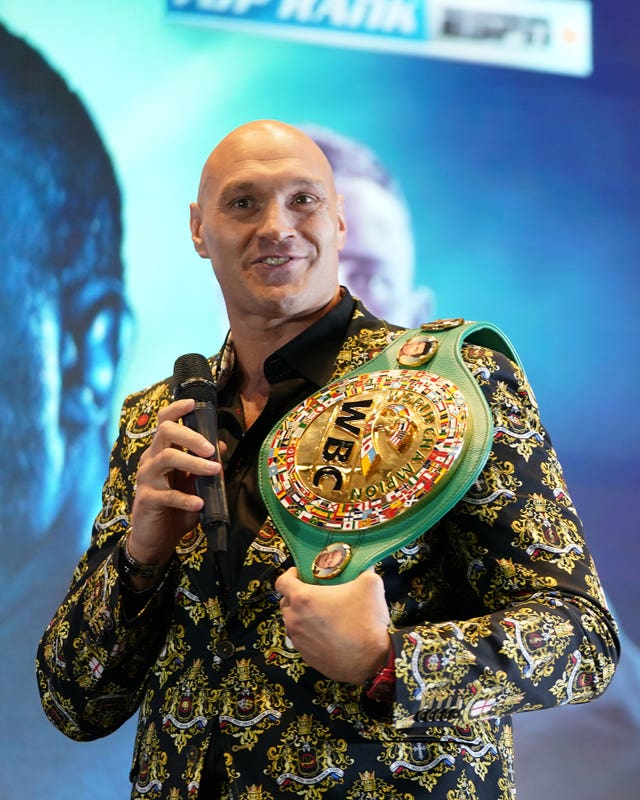Boxing champion Tyson Fury’s pride in being a Gypsy is helping others in that community who fear discrimination to have hope for the future, researchers have been told.
The Office for National Statistics (ONS), who interviewed members of the Gypsy and Traveller communities in England and Wales to find out about their experiences, were told that some individuals acted and spoke differently when among people from settled communities to avoid their true identity being discovered.
Some people from the Gypsy and Traveller community are also opting to hide their background because they fear prejudice and being treated like “second class citizens. ”
There were also those who were proud of their traditionally nomadic background, but others said they are thought of as “scum” in the wider world which saw them trying to avoid talking about their ethnicity, including from their child’s first day at school.

One Traveller, who was identified only as a man aged 50 to 60 years, told the ONS: “It’s like with Tyson Fury. Tyson Fury is fighting for us. To get our name out there because everybody just thinks we are like scum…”
WBC champion Fury, who defended his heavyweight title in routine fashion against Derek Chisora at the Tottenham Hotspur Stadium this week, has Irish Traveller heritage on both his mother and father’s sides.
The research found that decisions by some people in the Gypsy and Traveller community on whether they decided to share information about their ethnicity was based on wanting “to be recognised empathetically as an individual rather than treated on the basis of stereotypes about a group as a whole”.
The community had to deal with stereotypes from TV programmes where “all the girls on there getting married at 16 and things like that but Travellers are all different,” according to one Traveller.
The woman, who was aged between 30 to 40 years old, said: “Some might believe in their children getting married at 16 or 17 and that’s like their way, and then there’s other Travellers, like my family, that believed in getting an education and if you didn’t want to get married at 16 you didn’t, you wasn’t forced…
“If you wanted to get married at 16, 19, 25, 30…there was no pressure…
“Travellers are different and with the (television programmes), they just cause more discrimination and more stereotypes (making)…everyone to think like all Travellers are like (that).
“Like you have to have the big dress and you have to get married at 16 and all you’re there for (is) to have children, clean up and cook…
“I think that’s where most of the discrimination in school (comes from) where the children get bullied (because…) that’s all they’re watching…They think that’s how it is, but it’s not. It’s not like that at all. It’s just that each family is their own.”
There have been reports that tensions between Traveller and settled communities have often run high, with residents complaining about Travellers pitching caravans on unauthorised sites and leaving behind rubbish.
New ways are being sought through local and central government communities to improve understanding, trust and policy development.
A Welsh Government representative told the ONS that it had funded an advice and advocacy service because “we recognise that a lot of mainstream service provision isn’t tailored or trusted by these communities”.
It helps give people in the community access to their rights, plus public and ombudsman services “more effectively,” the representative said.






